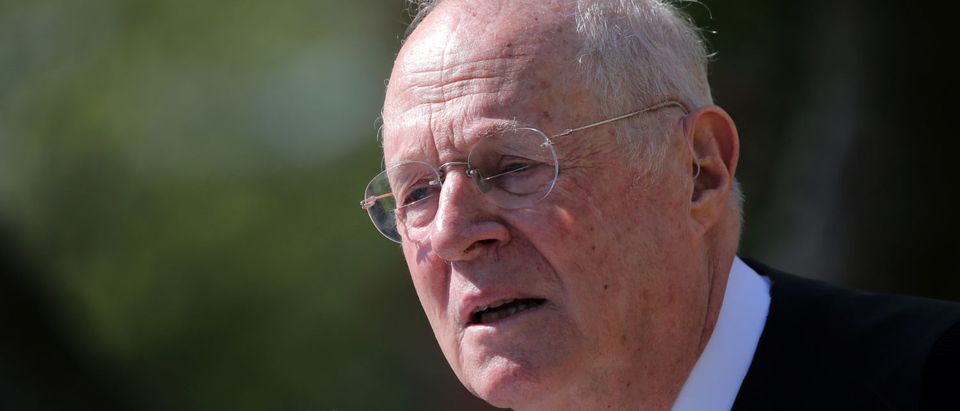The U.S. Supreme Court Monday declined to hear a challenge to an Arkansas law that restricts access to so-called medication abortions.
The denial, a moderately surprising result, hints at pending changes to the Court’s present composition.
The law at issue in Monday’s case requires clinics that administer medication abortions to contract with a physician who has hospital admissions privileges. Medication abortions, or RU 486 procedures, allow women to terminate a pregnancy by orally consuming a pill called mifepristone, followed by a second pill called misoprostol a day and a half later. The process is only effective within the first seven weeks of pregnancy.
Planned Parenthood sued to stop enforcement of the law. The case is called Planned Parenthood of Arkansas & Eastern Oklahoma v. Jegley.
The Arkansas provision is similar to a Texas law — H.B. 2 — that the Supreme Court struck down in a 2016 case called Whole Women’s Health v. Hellerstedt. The Texas regulations mandated that all abortion providers have admissions privileges at a hospital within 30 miles of their facility. In his opinion for a five-justice majority, comprised of Justice Anthony Kennedy and the four liberals, Justice Stephen Breyer explained the law places an undue burden on abortion access, since the costs of compliance outweighed medical benefits.
The laws are also congruent in effect, as abortion availability fell in both states following enactment. Dozens of reproductive health centers closed in Texas after H.B. 2 was implemented, while two of Arkansas’ three remaining abortion clinics are expected to close.
“This case presents virtually identical factual and legal issues as were before the Court in Whole Woman’s Health,” Planned Parenthood’s petition to the high court read.
Given the parallels the two matters present, the Arkansas case seemed a good candidate for Supreme Court review — but here’s where Kennedy’s rumored retirement plans become relevant. (RELATED: Supremes Silent In Longrunning Immigrant Abortion Controversy)
It seems unlikely that the four-justice liberal bloc would push for review of the Arkansas case if they were uncertain of the outcome. In this instance, there’s little reason for uncertainty. The details and particulars of Jegley are almost identical to those of the Texas case, and every member of the Whole Women’s Health majority is still on the Court. Since a petition only needs four votes for review, why did the liberals stand down on Monday?
One possible answer is that they know (or fear) Kennedy will not be on the Court by the time the case reaches the briefing and argument stage. At this juncture, the Court’s docket for the current term is full. Any case now granted will not be heard until October at the earliest. Should President Donald Trump replace Kennedy before the start of the next term, the liberal justices will lose the fifth member of their tenuous pro-choice majority. Better, under those circumstances, to keep abortion cases off the Court’s docket, lest a new, emboldened conservative majority deconstruct the pro-abortion legal architecture erected in recent decades.
There are other explanations for Monday’s tactical retreat. U.S. District Court Judge Kristine Baker originally enjoined the Arkansas law, but the 8th U.S. Circuit Court of Appeals overturned that decision and allowed it to take effect, finding Baker did not make the factual findings necessary to justify such a ruling. An undue burden inquiry is necessarily fact-driven, so it’s quite possible the justices agreed they needed more data before taking the dispute.
This outcome is probably acceptable to the liberal bloc, since the case will now return to the district court, where Baker can buttress her original ruling with further findings of fact and block the law in the near future.
Whatever the current dynamic, the cautious calculus at work in Monday’s decision seems to gesture in an important direction.
Send tips to kevin@dailycallernewsfoundation.org.
All content created by the Daily Caller News Foundation, an independent and nonpartisan newswire service, is available without charge to any legitimate news publisher that can provide a large audience. All republished articles must include our logo, our reporter’s byline and their DCNF affiliation. For any questions about our guidelines or partnering with us, please contact licensing@dailycallernewsfoundation.org.


